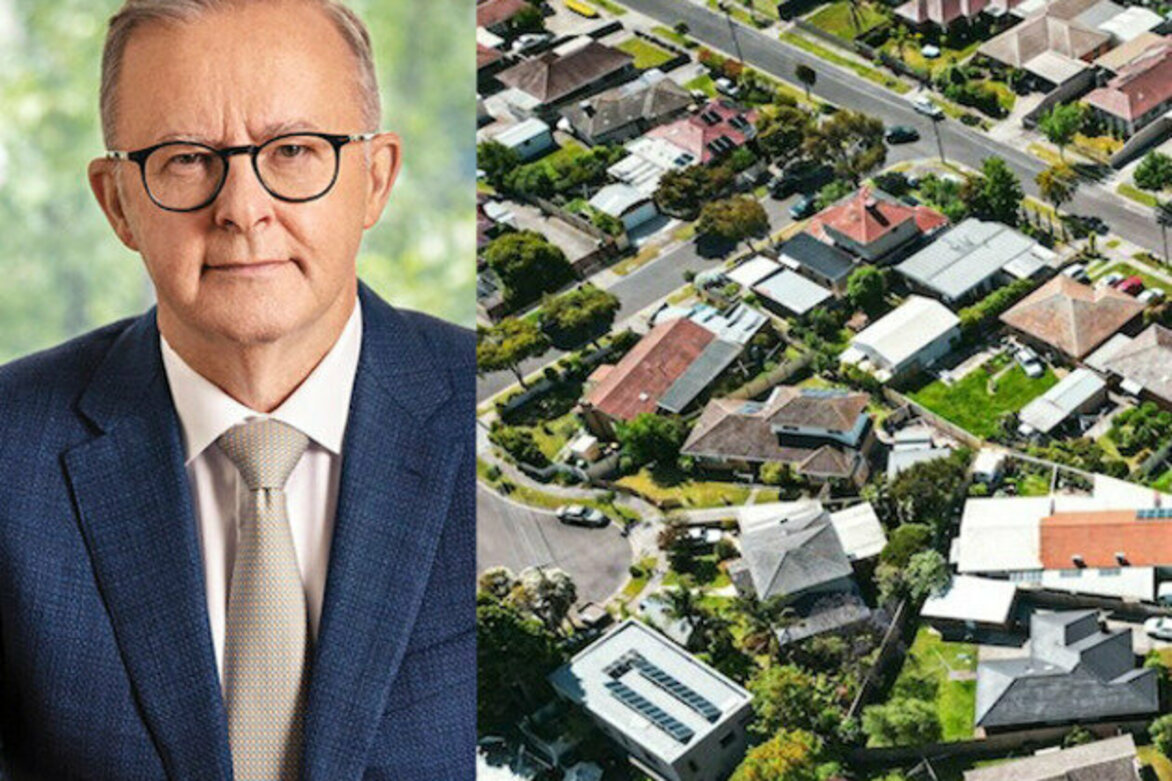Why this Labor term may not see sufficient housing reform
Independent Australia
15 May 2025

On the back of Labor's historic win, the Government's biggest challenge will be trying to deliver on its promise to reform housing.Callum Sen Murrayreports.
LABOR'S ELECTORAL SUCCESS ishistoricfor three reasons.
First, Laborsecuredits highest number of seats ever; second, it achieved this despitereceivingonly 34.7% of the primary vote; and third, the Coalitionsufferedits worst ever electoral defeat.
With Labors gains in the Senate and the Greens retaining theirseatsthere, only the latter's support is needed to pass legislation. This dominance has fuelledoptimismfor structural reform especially in the housing market.
Over the past forty years, Australian house prices havesurgedby approximately 150% when adjusted for inflation. This significant rise has been driven by key factors such as population growth, limited housing supply and persistently low interest rates.
Government incentives like negative gearing and capital gains tax discounts have further exacerbated theissueby encouraging speculative investment that inflates housing demand. While opinionsdifferon the merits of these policies, calls for Labor tospendits political capital on broad housing market reform may ignore the electoral lessons of recent history.
AUSVOTES ECONOMIC FACTS #12: Housing affordability on the mendThe economy is a dominant issue in the Election. From now until polling day, Independent Australia will outline some key facts on the economy that put the kybosh on many of the myths, lies and distortions being peddled in the election campaign.
Labors current housingpolicies100,000 homes for first-home buyers, five per cent deposits,Help to Buy, andBuild to Rentarepredictedto increase demand. Talk of reformingnegative gearingbriefly surfaced last year. It was swiftlyshutdown.
The Greens havepreviouslyindicatedthey may pressure Labor into revisiting this policy and others. However, the previous Parliament dispels this hope: the Greens played hardball on housing policy yet eventually conceded. Such intransigence may havecontributedto the loss of the Greens' seats in the Lower House.
Despite predictions that Labor's commandingmajorityvirtually guarantees a third term, significant housing reform remains improbable for three reasons: electoral arithmetic, historical precedent and political scars.
Nearlyhalfof the Australian electorate holds mortgages. Any policy that meaningfully reduces house prices risks driving homeowners into negative equity.
The political fallout would likely be severe. Many of these voters could turn to the Liberals, who would campaign to reverse such policies. Labor is aware of this reality; onQ&A, Housing MinisterClare ONeilsubtlyacknowledgedthe political necessity of rising house prices, while former Opposition LeaderPeter Duttonexplicitlystatedasmuch.
This strategic caution is not unique to Australia.
In 2021, New Zealand Laboursecureda historic parliamentary majority the first of its kind since theintroductionof mixed-member proportional system in the 1990s.
New Zealand'shousingcrisisisworsethanAustralia's. COVID-19 was considered an opportunity to implement major structural reform. Although the Labour Government held full legislative power New Zealand's upper house wasabolishedin 1951 it failed to meaningfully address housing affordability. Labour feared electoral backlash as the Opposition, disproportionately supported by landlords,pledgedto repeal most reforms. Labourlostthe 2024 election for other reasons. The housingcrisisconsequently endures.
Back to Australia, Labor remains scarred by its 2019 electiondefeat. The Coalition ran a series of effectivescarecampaigns against Bill Shorten'sreform agenda, which included proposed changes to housing policy like capital gains tax and negative gearing.
Liberal Party memberTim Wilson'scampaignagainstfranking creditswas also particularly effective. Labor's policies were rejected by the electorate. The message was clear: housing reforms that threaten property values or one's hip pocket underpin successful scare campaigns.
Labors housing strategy just added several flash new storeysThe contrast between Labor and the Coalition on housing policy continues to widen.
This wariness is reinforced by bipartisan historical miscalculations.
In 2004, the Coalitionwona rare majority in both the House and the Senate. Rather than proceeding cautiously, it introduced the deeply unpopularWorkChoicesindustrial relations reforms policies that had not been flagged during the campaign. The backlash was part ofthereasonfortheirdefeatin2007.
A similar event occurred in 2010 when Labor'sJulia Gillardpromised, "there will be nocarbon taxunder a government I lead", yet introducedoneas part of a deal with the Greens in a hung parliament. This breach of trust helpedpavethe way for the Coalition returning to government in 2013. Despite three successiveLiberalPrime Ministers, no meaningful measures were introduced to address housing affordability.
The current Labor Government is likely to adhere strictly to its campaign promises, given recent electoral history shows that deviation,particularly on housing reform, can be politically damaging. If structural housing reform is to occur, it is most likely to be introduced as part of Labor's platform for the 2028 election.
Historical precedents support this notion: TheHawkeandKeatingGovernments delivered sweeping economic reforms after first proposing them to the electorate, andJohn Howardsuccessfully introduced theGSTin 1998, despite its initial rejection in 1993.
However, significant resistance can be expected from the Coalition, which traditionally rallies landlord support as a reliable voter base. Should a more ambitious Labor reform agenda fail to materialise in 2028, it is difficult to envision when it might.
Although Labor's political capital is substantial, it may not be enough to overcome entrenched electoralsensitivitiessurrounding housing prices. Until a broader consensus for change emerges, speculation about imminent reform is likely to remain illusory.
Callum Sen Murrayresides in WA, works in public policy and has a keen interest in international affairs.
